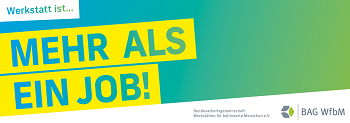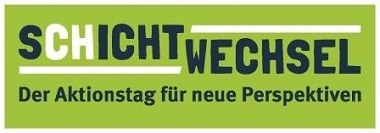In Germany, people with disabilities are entitled to receive direct funding from the state in the form of compensation payments for their disabilities (§§ 53 ff. SGB XII). They also are entiteld to receive social security payments. Depending on the type and severity of the disability and depending on the time or situation in which the disability was acquired, the individual person receives funding for services they need to live their life as self-determined as possible. The responsible body can be the federal employment agency (unemployment insurance), the health, pension, or accident insurance authorities or the regional agency of public assistance.
In case of vocational rehabilitation services for people with particularly severe disabilities the obligated authorities mostly are the federal employment agency (unemployment insurance), the pension insurance authority and the regional agency of public assistance.
If a person is able and wants to receive services of vocational rehabilitation, these authorities are allowed to transfer the financial means for the vocational rehabilitation directly to the respective part of the support network for people with severe disabilities.
The support network consists of work opportunities in inclusive enterprises, the concept of supported employment, the ‘budget for work’ (nationwide available since 2018, § 61 SGB IX), the ‘budget for apprenticeship’ (nationwide available since 2022, § 61a SGB IX) and participation in working life through the services of a sheltered workshop.
With regard to training and education for people with disabilities after school, there are opportunities to obtain vocational training (vocational training means here that the trainees can obtain a professional qualification certificate) in so-called vocational training centres (German: Berufsbildungswerk – for young people with different impairments; not exclusively for people with disabilities). Vocational rehabilitation centres (German: Berufsförderungswerk – for adult people with different impairments; not exclusively for people with disabilities) and vocational training centres for people with psychological illnesses (German: Berufstrainingszentrum) provide services for adults, in general for people who have already worked on the open labour market. People with disabilities who are more severely disabled can obtain vocational education in the sheltered workshops’ department of vocational education (Vocational education means here that, in contrast to vocational training (fn. 5), the people with disabilities trained in the sheltered workshops’ department of work are not entitled to a professional qualification certificate at the end of the measure).
Sheltered workshops in Germany cannot finance themselves. They receive a reimbursement per workshop user which depends on his or her degree of disability (§ 125 Abs. 3 S. 3, § 131 Abs. 1 Nr. 2 SGB IX). These ongoing payments in form of cost rates are calculated either per calendar day (365 days) or per working day (250 days). Generally, the sheltered workshop is in negotiation with the regional agency of public assistance once a year to define the cost rates for the next 12 months. In addition, sheltered workshops can obtain the financial means for their buildings and technical equipment, if they can prove the need and significance of the investment.
Sheltered workshops are non-profit-organizations. Their main goal is to enable
participation in working life and not to generate a profit. However, they have
to generate a minimum amount of profit because they are obliged by law to
remunerate the workshop users according to their performance (§ 219 Abs. 1 Nr. 1 SGB IX).
The income generated by sheltered workshops through
their economic activity must be used as follows: a minimum of 70% of the income
is used for the remuneration of the workshop users (§ 12 Nr. 1 WVO; the reserves are not allowed to exceed the remuneration of the workshop users for a period of six months). Many
sheltered workshops pay out a higher percentage. The remaining amount can only
be used for remuneration reserves for the workshops users or for investments
not covered by other fundings (§ 12 Nr. 2 WVO).
The
estimated average income by turnover is 26,7% and the income by subsidies
73,3%. It is important to know that sheltered workshops do not get subsidies
for only providing work opportunities for people with disabilities. Sheltered
workshops are highly specialised facilities of vocational rehabilitation.































